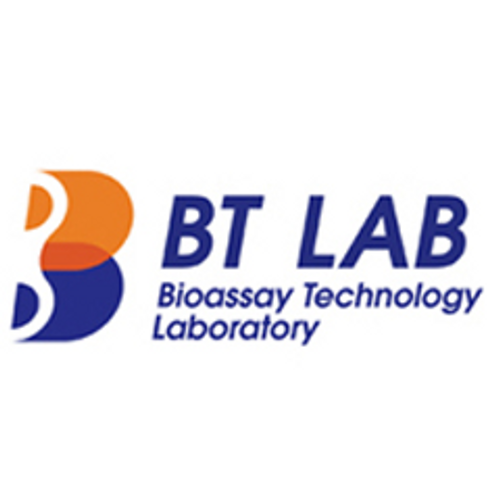Product Description
Human 3-oxo-5-alpha-steroid 4-dehydrogenase 2 (SRD5A2) ELISA Kit | AE15159HU | Abebio
Species Reactivity: Human (Homo sapiens)
Abbreviation: SRD5A2
Alternative Name: MGC138457; 3-oxo-5 alpha-steroid 4-dehydrogenase 2|steroid 5-alpha-reductase 2
Application: ELISA
Range: 0.312-20 ng/mL
Sensitivity: 0.122 ng/mL
Intra-Assay: ≤5.3%
Inter-Assay: ≤9.8%
Recovery: 0, 99
Sample Type: Serum, Plasma, Other biological fluids
Detection Method: Sandwich
Analysis Method : Quantitive
Test Principale: This assay employs a two-site sandwich ELISA to quantitate SRD5A2 in samples. An antibody specific for SRD5A2 has been pre-coated onto a microplate. Standards and samples are pipetted into the wells and anySRD5A2 present is bound by the immobilized antibody. After removing any unbound substances, a biotin-conjugated antibody specific for SRD5A2 is added to the wells. After washing, Streptavidin conjugated Horseradish Peroxidase (HRP) is added to the wells. Following a wash to remove any unbound avidin-enzyme reagent, a substrate solution is added to the wells and color develops in proportion to the amount of SRD5A2 bound in the initial step. The color development is stopped and the intensity of the color is measured.
Product Overview: SRD5a2 encodes a microsomal protein expressed at high levels in androgen-sensitive tissues such as the prostate. The encoded protein is active at acidic pH and is sensitive to the 4-azasteroid inhibitor finasteride. Deficiencies in this gene can result in male pseudohermaphroditism, specifically pseudovaginal perineoscrotal hypospadias (PPSH) . Steroid 5-alpha-reductase catalyzes the conversion of testosterone into the more potent androgen, dihydrotestosterone (DHT) .The cDNA contains a long 3-prime untranslated region and encodes a hydrophobic 254-amino acid protein that shares 50% sequence identity with human SRD5A1 and 46% identity with rat 5-alpha-reductase. The biochemical and pharmacologic properties of the enzyme were consistent with its being the major isozyme in genital tissue.
Stability: The stability of ELISA kit is determined by the loss rate of activity. The loss rate of this kit is less than 5% within the expiration date under appropriate storage condition. The loss rate was determined by accelerated thermal degradation test. Keep the kit at 37°C for 4 and 7 days, and compare O.D.values of the kit kept at 37°C with that of at recommended temperature. (referring from China Biological Products Standard, which was calculated by the Arrhenius equation. For ELISA kit, 4 days storage at 37°C can be considered as 6 months at 2 - 8°C, which means 7 days at 37°C equaling 12 months at 2 - 8°C) .
 Euro
Euro
 USD
USD
 British Pound
British Pound
 NULL
NULL












